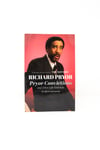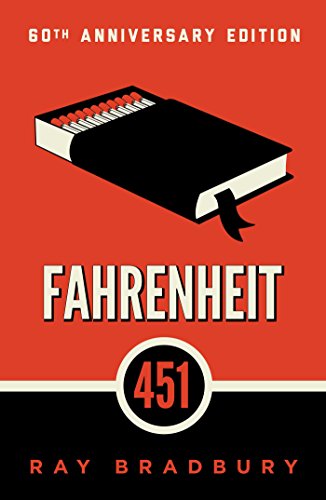Of the course of my life I have given my mother a few books to read. The first I remember was the Harry Potter series, when I was young enough to care about them and young enough to be humoured about them. I think she got to about the fourth one and stopped. I gave her The Big Sleep by Raymond Chandler, she didn't like that because she spent the whole thing picturing Humphrey Bogart in a trenchcoat and apparently this was bad. She also had the nerve to read it while in the bath and the cover started peeling off. I have her the New York Trilogy by Paul Auster and it had too many words. I gave her The Great Gatsby when the last film adaptation came out in 2013 and it was, I quote: "too boring, nothing happens in it."
When she comes to me with a book and says "you should read this, it's filled with great reviews but I had to fight to make myself get through it," well, could there be a more ringing endorsement? So we come to Three Hours by Rosamund Lupton, a book released in 2020 concerning an armed siege at a fictional school somewhere in Somerset. I can't really condense the plot any further than that because to do so would be to describe everything that happens in the book, as well as pre-empt the specific aspects of it I'm going to criticise in the coming paragraphs.
Central to the story is the notion that the school is "a microcosm of 21st century Britain" where a narrative voice wonders aloud "what students must have thought when a teacher announced she was a lesbian before giving them geography homework." The school welcomes everyone and encourages them to be who or whatever they are. That's why we have gay teachers. We have a young boy who wears headphones all the time and doesn't like to be touched. We have a head teacher who is shot in front of a glass case on the wall containing pictures of boys from the school before they went off to fight in the wall, the pictures kept there as solemn, as brave, as a reminder, and the glass like the shrapnel they faced as it breaks behind him. That sequence is mentioned twice for some reason, I don't know why. It's why we have Rafi and Basi, two Syrian refugees who were taken in by the school's headmaster because he just had to. It's why the school's deputy head has only just returned to work after being off for depression, which apparently makes him more attuned to evil when it appears. That narrative voice from earlier muses that Churchill suffered from depression and that's how he knew Hitler was so bad.
The police task force which rolls up to respond to the shooting is presumably supposed to be the same snapshot of modern life, with a list of names and ethnicities reminiscent of a scouting report full of regens from Football Manager. Lysander, Dannisha, Rose and Aamil all get on perfectly, and if they're not busy looking up what a psychopath is on wikipedia then friendly old PC Beard is on the phone to the school's deputy head after being shot at himself, saying not to worry about the buggers haha, they probably won't think a regular bobby like me is a threat.
Unusually for a story about an armed siege in a fixed location, the identity of the shooters (there's two of them, there might be three but the suggestions of a third honestly read like she planned to write one in, forgot to mention them again then nobody who edited this noticed or remembered to take it out) don't actually feature until halfway through. "Who could it be, do we reckon?" "Oh the school's had three people been expelled. It must be one of them." Five minutes elapse. "Oh it is one of them, we've cracked his laptop, he's been on the dark web, he's become radicalized, he's a Nazi, he's made a bomb, he's modified his gun to be automatic, he's read some Donald Trump tweets (reprinted in the book in their original format, no less), he's read some Katie Hopkins articles, he's blowing up the school because there's two Muslims in it, he's befriended a lonely boy and this is exactly like Columbine because that's what Columbine was, a psychopath and a hopeless idiot tagging along.
This is roughly how the pacing of the book goes. Even then, and even with the story taking place over, er, three hours with the current time featuring at the start of each chapter, it's a physical effort to get through writing this awful. The entire thing read like liberal twitter became self-aware and collaborated to write a book about how downright mean and nasty right wing terrorists are and how gosh darn honest to goodness welcoming accepting society is in the face of it. After spending half an hour researching the subject on wikipedia. I'm not exaggerating that Columbine thing - it's practically lifted straight from the page. Some attempts at actual writing appears when the two Syrian boys' journey comes up with no warning, as the younger one remembers parts of the journey without being able to distinguish them from the situation he's currently in. This is a subject which could actually be interesting in the hands of someone who could string a sentence together, but here it's so clumsily managed it's impossible to know what's real and what isn't even when you're told.
Quite honestly, writing this bad has to be seen to be believed. I'm stunned that something this terrible can have been produced so recently, never mind published by Penguin and starting with three and a half pages of testimonials (some from actual reputable newspapers, the rest seemingly from other women with books published by Penguin). Writing this bad does a disservice to the subjects it attempts and fails to wrangle together. Its maudlin, childlike sentimentality undermines any real societal threats it tries to challenge or highlight. While it attempts subtlety - some of the children are performing Macbeth which is also about an unseen, unknown evil killing people, great. Saying the Syrian boy picked this specifically because it's like the Syrian civil war and saying that pictures of Aleppo are projected on stage and repeating several times that it's like the Syrian civil war, not great - it's done so obviously and insistently that no matter your political or sentimental leanings, you'll resent everything this book claims to stand for by the end of it.
I am of no doubt that I could write better books than this. I am also of no doubt that I could write this exact story much better than this. The only way I could do proper justice to its horrors is to actually pick out passages and just post them, then you could see this for yourself. Judging by the amount of times I had to stop to laugh while reading, I'd be here a while.
















